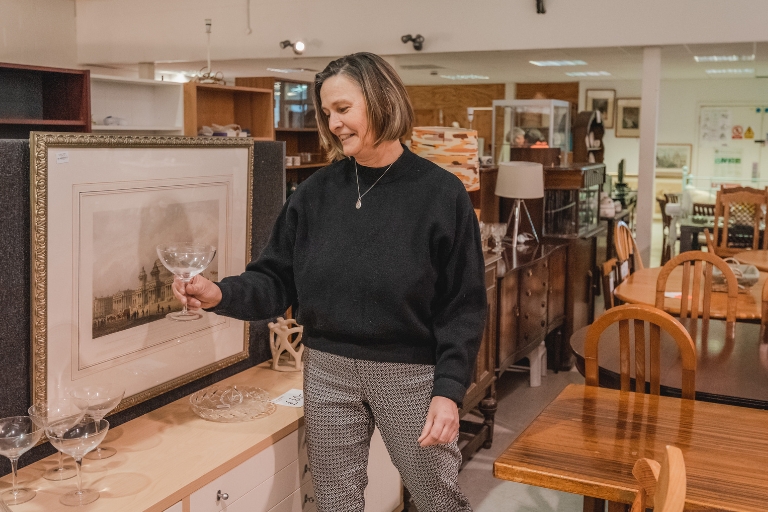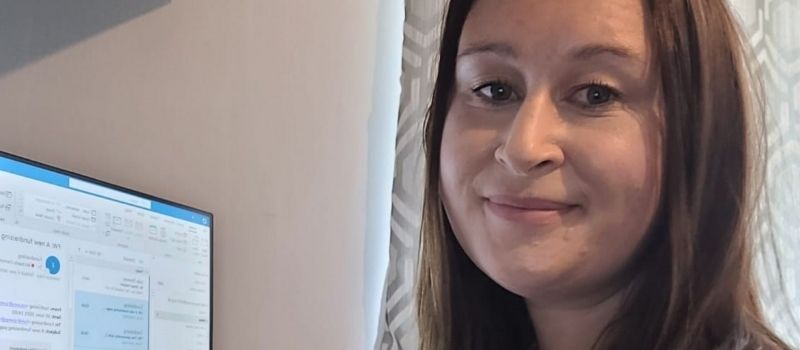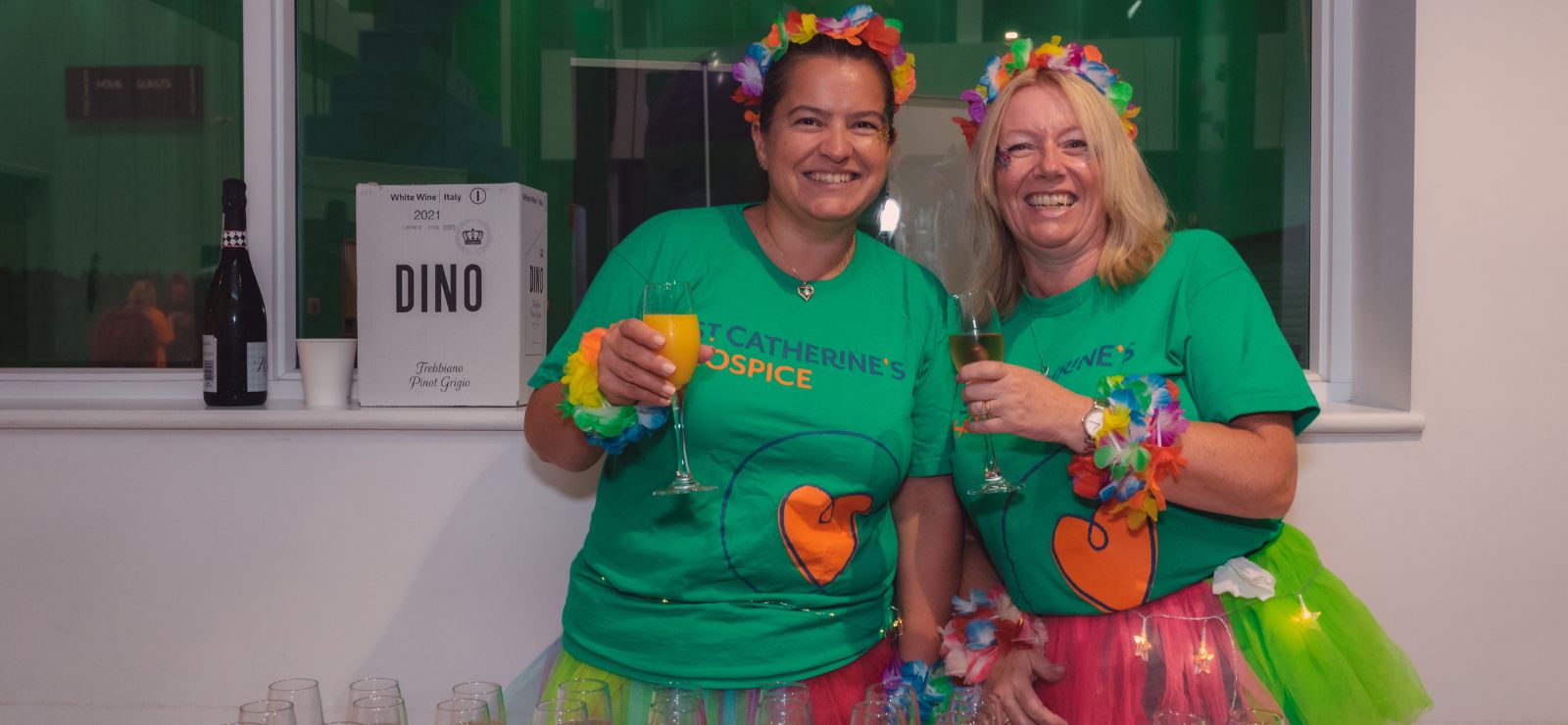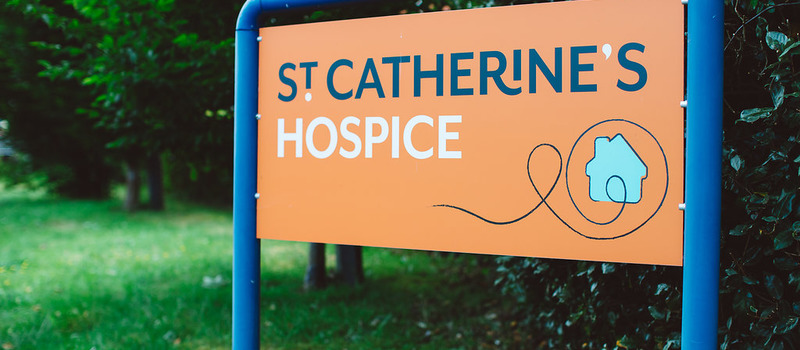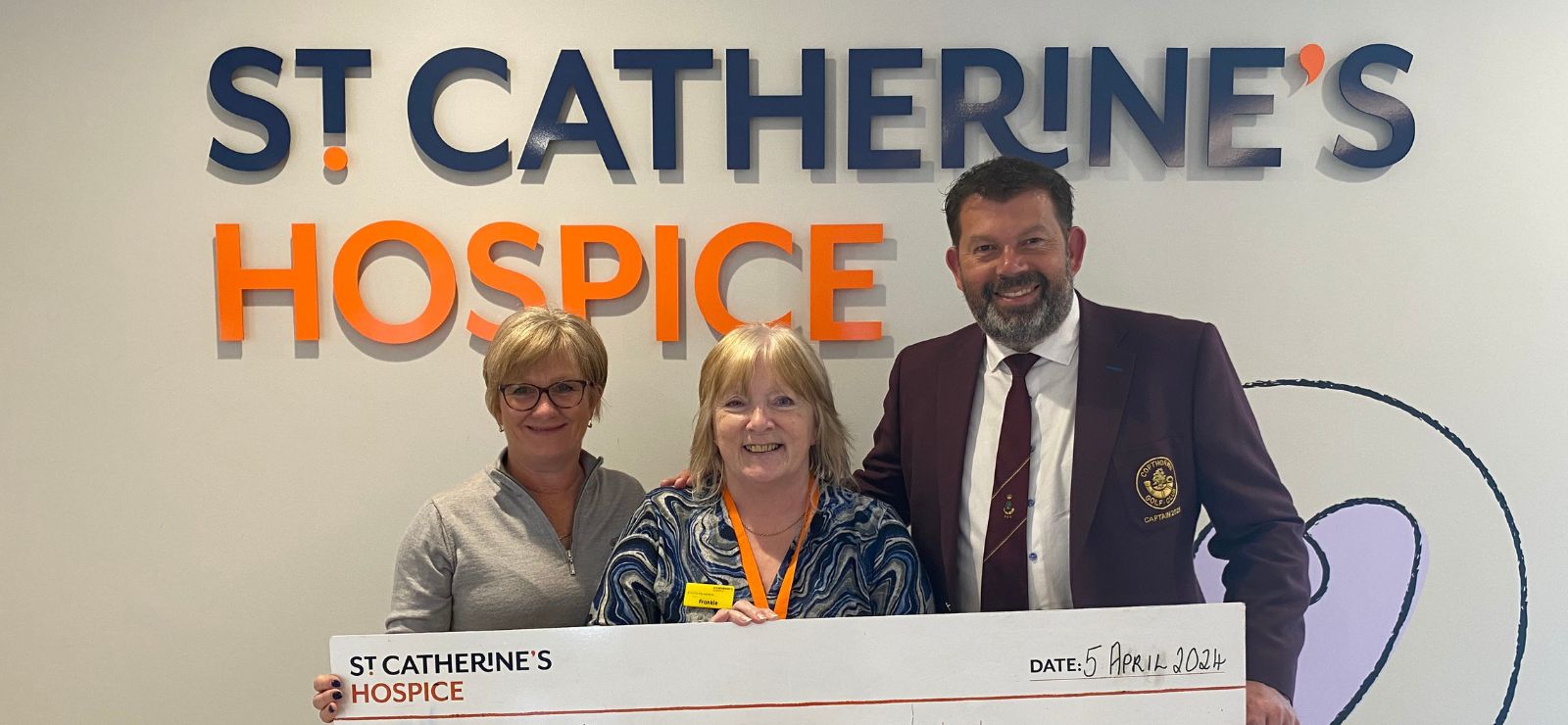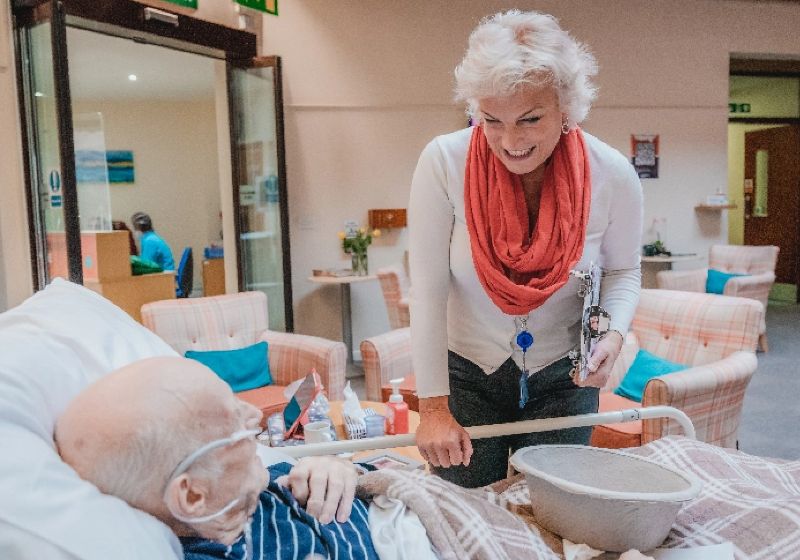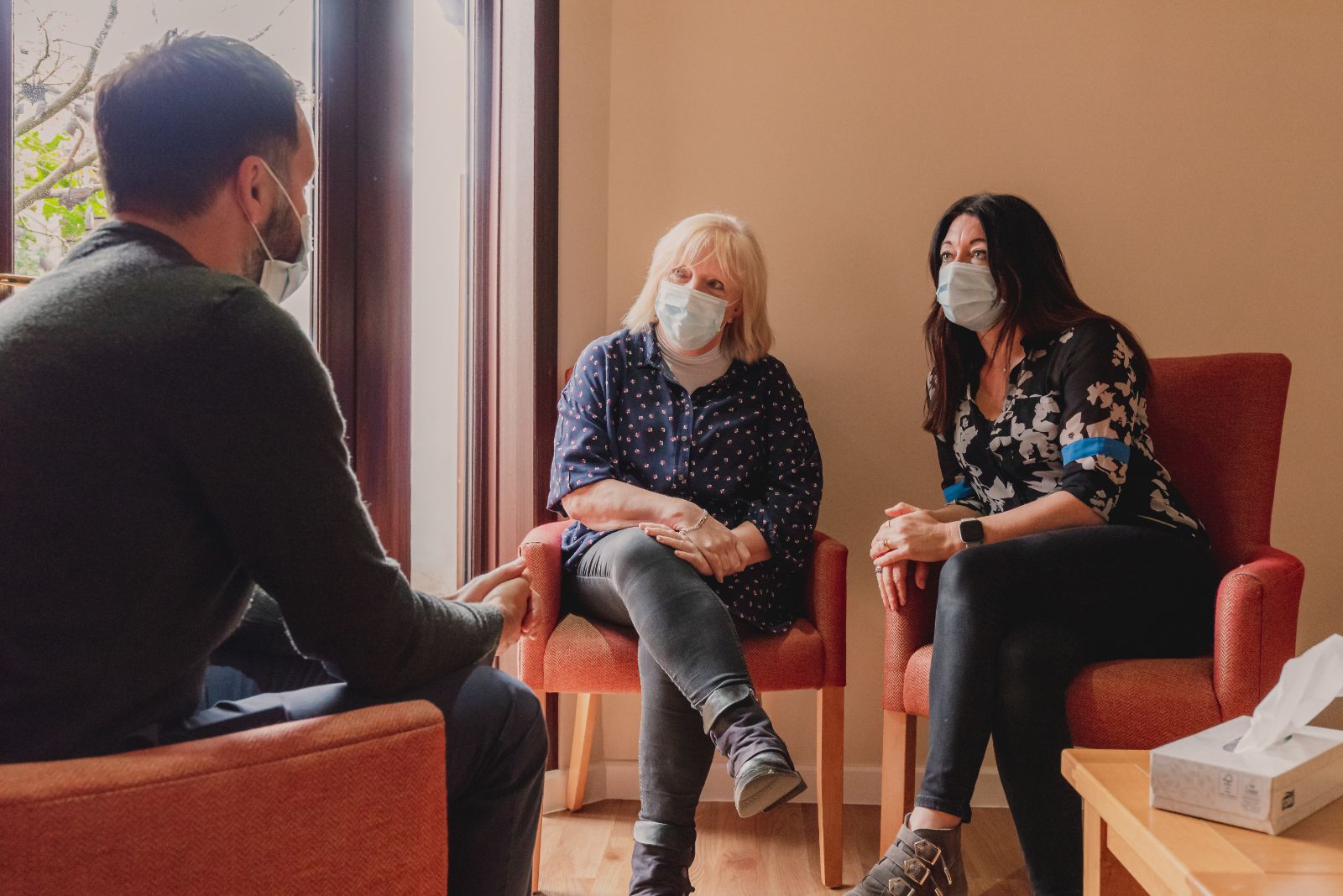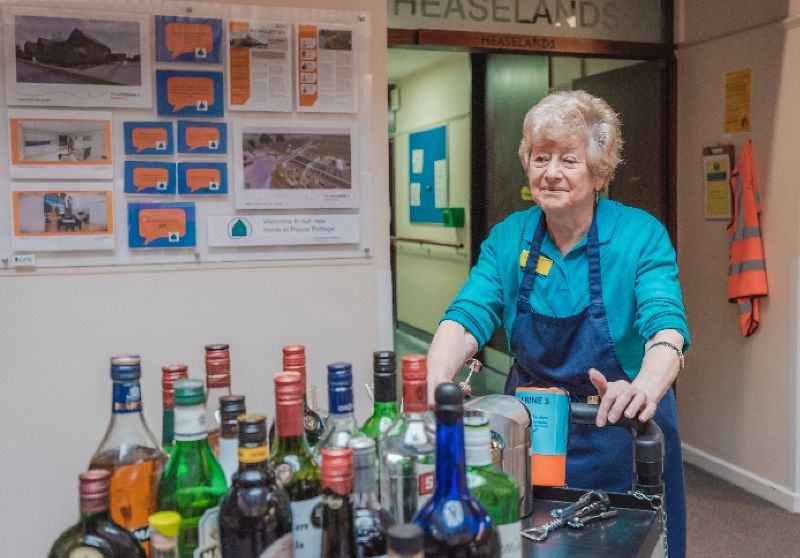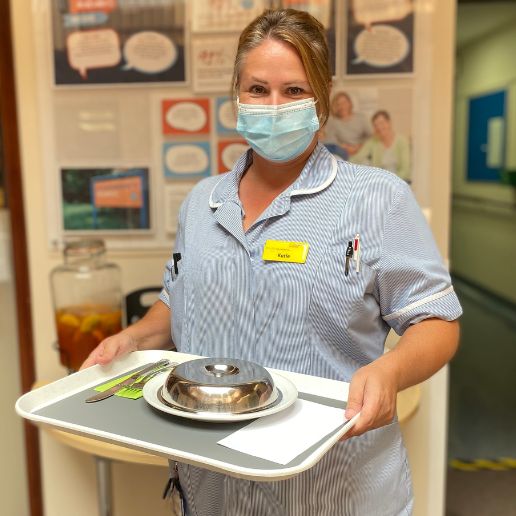Talking about death and dying
Felicity Parsons is one of our fundraisers. Here, she shares how recent training has helped her become more comfortable having conversations around death and dying.
“When I first become a fundraiser for a hospice, like many, I was unsure how to have an open conversation about death and dying.
I present to people frequently in my role – at community groups and schools, and each time it feels a little more comfortable talking about this taboo subject. In recent months I’ve attended some webinars and a training session that have opened my eyes to how simple and impactful having conversations around death and dying can be.
Firstly, in my own time I decided to go to an Action for Happiness online event named Why Sadness matters.
I found it really insightful and it really made me think about how we approach grief, the idea that we must be happy and sometimes, how we ignore our true feelings to show a stiff upper lip.
It made me think of conversations I’ve had with some of our supporters who’ve expressed guilt for feeling happy too soon after a bereavement. We punish ourselves to feel a certain way but don’t let ourselves accept that how we feel is okay, and if that’s sad then we can be sad. This is something I now openly discuss with supporters to help them recognise that there is no right or wrong way to feel. It also helped me see that sometimes I should let myself feel sad and not hide it. The video of this event, “Why Sadness Matters – with Helen Russel” can be found here, and I would highly recommend taking the time to watch it.
Another fantastic webinar I attend was on legacy conversations at the Hospice Income Generation Network conference.
Again, as a new fundraiser here, I knew that legacies made up a good chunk of our income but I didn’t know how to approach the subject and what to say about it. My confidence has grown as I’ve gained experience in presentation but this session put the wind in my sails! It was so nice to be in a group of people taking about death and dying and giving a gift in a will openly without it being in hushed tones, accompanied with an awkward shuffle and many ums and ars!
A phrase that particularly stuck with me was thinking of legacies as a ‘symbolic immortality’
For many people it’s important that they give back and contribute to something for the future. Hearing those words made it so much simpler to feel confident bringing up giving a gift in a will. I can start by talking about how important it is to the person leaving the gift and that it’s a mutually beneficial transaction.
I recently gave a presentation where I mentioned this, and I could see a difference in engagement to when I first started giving presentations where it was just a passing statement at the end of our fundraising segment …”Oh and some people leave a gift in a will to our hospice”. Now it’s a discussion about people’s impact to the future of care, and the necessity in a person’s journeys of grief and gratitude.
I also had the pleasure of recently attending the funeral workshop hosted by Lisa Rainier and Judith Dandy from Dandelion Farewells Funeral Directors
This was another fantastic chance to talk about death and dying in an open discussion. I learnt so much but there were particular moments that really stuck in my mind:
- Hearing my clinical colleagues talk of their pride to deliver the last offices was so inspiring – A fantastic reminder of their impact and another experience I can share to inspire supporters
- Discussing the reasons for a funeral, what it means to a family and how significant it can be to the person who has passed away, all made the fear of talking about legacies creep away. We know the significance of these moments to those we support and we can guide them through the tricky conversations.
At the end of the event Judith presented us all with three books about death and dying. She openly told us the significance of the literature and how a close friend had asked her to give to St Catherine’s. This was her way of giving and leaving a legacy for her friend – to make sure that we all had great resources behind us. What an incredible way to honour someone’s memory.
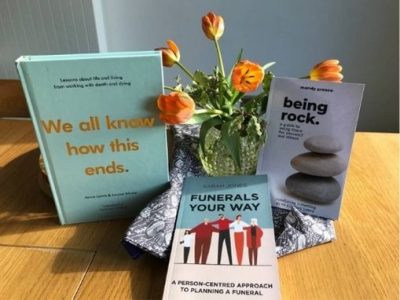
The more events I attend, the more I realise how simple these conversations can be
Sometimes I’ll say to my partner that I spoke to a recently bereaved supporter and asked them about why they support us, and about the person that’s died. He’ll say “You can’t ask that surely!”, so fearful that a conversation of this nature might upset them but this is their reason for connecting with us, and the reason that they’re on a journey with us. That doesn’t end because their friend or relative has died.
I’m so glad that I’m in a position where I can attend such insightful events and keep in practise with these conversations. I hope to be an ambassador in speaking about death and dying and the significance of these incredible conversations.”


